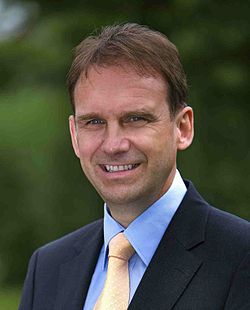Outcome
Minister-President and CDU leader Dieter Althaus resigned in the wake of the election, stating he took responsibility for his party's losses. [2] However, observers noted that his resignation also helped clear the way for a grand coalition between the CDU and SPD, which was preferred by both parties, and would be easier to manage under new leadership. The only viable alternative to a grand coalition was a government led by The Left with SPD and Green support, which both the CDU and SPD sought to avoid; the CDU because such a coalition would leave them in opposition, and the SPD because of personal animosity between its leader Christoph Matschie and Left leader Bodo Ramelow. [2] Ultimately, a grand coalition of the CDU and SPD was formed under the leadership of the CDU's Christine Lieberknecht, who was elected Minister-President.
This page is based on this
Wikipedia article Text is available under the
CC BY-SA 4.0 license; additional terms may apply.
Images, videos and audio are available under their respective licenses.






